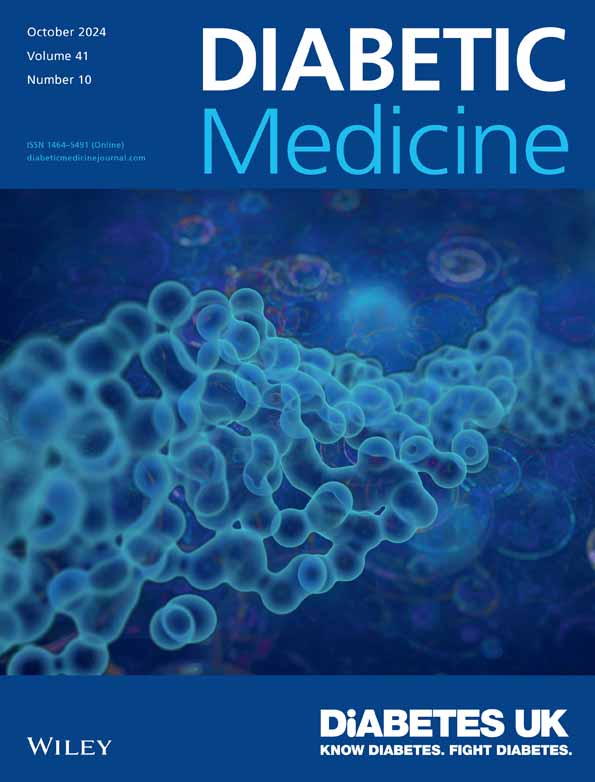Acceptability and psychometric properties of four scales assessing the impact of Type 2 diabetes on quality of life—Results of ‘YourSAY: Quality of Life’
Abstract
Aims
To assess and compare the psychometric properties and acceptability of four diabetes-specific quality of life (QoL) scales among adults with Type 2 diabetes (T2D).
Methods
Adults (≥18 years) with T2D living in the United Kingdom (n = 1465) or Australia (n = 248) completed a cross-sectional, online survey including the following: ADDQoL, DCP, DIDP and Diabetes QoL-Q (presented in randomised order), followed by rating scales to assess clarity, relevance, ease of completion, length and comprehensiveness of each scale. Demographic, clinical and psychosocial characteristics were collected. Acceptability (scale completeness and user ratings), response patterns, structure (exploratory and confirmatory factor analyses) and validity (convergent, confirmatory, divergent and known-groups) were examined. Data were analysed by country to assess cross-country reproducibility.
Results
High completion rates (≥89%) and positive user ratings were observed across scales indicating broad acceptability. The DIDP was the strongest performing scale: highest completion rate (97%), user ratings (≥84% positive) and most satisfactory psychometric properties (highest variance explained, consistent factor loadings >0.5 on all items and most permissible model fit parameters). Scale-level floor effects may suggest domain omissions for the brief DIDP.
Conclusions
The current study provides novel insights into the acceptability, validity and reliability of diabetes-specific QoL measures for adults with T2D. Consistent with the published Type 1 diabetes cohort findings, the DIDP is recommended as a brief, acceptable and psychometrically sound measure. However, selection needs to be considered in the context of the specific research or clinical aims and further evidence (e.g. responsiveness) may be required before it can be recommended for use in trials or prospective studies.

 求助内容:
求助内容: 应助结果提醒方式:
应助结果提醒方式:


